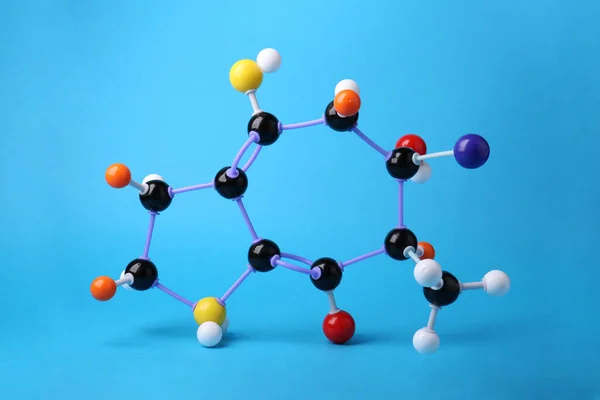Unlocking the Secrets of Matter: Exploring Molecular Chemistry Courses

Molecular chemistry, a cornerstone of modern science, delves into the intricate world of molecules, atoms, and chemical bonds. Molecular chemistry courses provide students with a deep understanding of the fundamental principles governing chemical reactions, molecular structures, and the behavior of matter at the molecular level. In this comprehensive exploration, we embark on a journey into the realm of molecular chemistry courses, uncovering their significance, key areas of study, laboratory techniques, and the profound impact they have on various scientific disciplines.
Molecular chemistry courses form the bedrock of chemical education, offering students a comprehensive overview of the principles, theories, and applications of molecular science. These courses blend theoretical concepts with practical laboratory experiments, enabling students to explore the fundamental properties of molecules and understand their role in chemical reactions and transformations. From the structure and bonding of molecules to the thermodynamics and kinetics of chemical reactions, molecular chemistry courses provide a holistic understanding of the molecular world.
Key Areas of Study in Molecular Chemistry Courses
Chemical Bonding and Molecular Structure: Molecular chemistry courses delve into the intricacies of chemical bonding, exploring concepts such as covalent bonding, ionic bonding, and metallic bonding. Students learn about molecular geometry, hybridization, and resonance theory, gaining insights into the three-dimensional arrangement of atoms in molecules.
Chemical Reactions and Kinetics: Courses in molecular chemistry cover the principles of chemical reactions and reaction kinetics. Students study reaction mechanisms, rate laws, and reaction kinetics, gaining an understanding of how molecular interactions govern the rate and outcome of chemical reactions.
Thermodynamics and Energetics: Molecular chemistry courses explore the principles of thermodynamics and energetics, including concepts such as enthalpy, entropy, and free energy. Students learn about the laws of thermodynamics, phase equilibria, and the relationship between molecular structure and thermodynamic properties.
Spectroscopic Techniques: Laboratory components of molecular chemistry courses often include training in spectroscopic techniques used to characterize molecular structures and properties. Students learn to use techniques such as infrared spectroscopy, nuclear magnetic resonance (NMR) spectroscopy, and UV-visible spectroscopy to analyze molecular samples and identify functional groups.
Organic and Inorganic Chemistry: Molecular chemistry courses cover both organic and inorganic chemistry, exploring the structure, properties, and reactivity of organic and inorganic molecules. Students learn about organic functional groups, reaction mechanisms, and synthetic strategies, as well as the periodic trends and chemical properties of inorganic elements and compounds.
Laboratory Techniques and Hands-On Experience
Laboratory components play a crucial role in molecular chemistry courses, providing students with hands-on experience in chemical synthesis, analysis, and characterization. In laboratory sessions, students learn techniques such as titration, chromatography, and spectroscopy, gaining practical skills in chemical analysis and experimental design. Laboratory experiments allow students to apply theoretical concepts to real-world scenarios, develop critical thinking skills, and gain confidence in their ability to conduct scientific research.
Career Prospects and Applications of Molecular Chemistry
Graduates of molecular chemistry courses are well-equipped for diverse career opportunities in academia, industry, government, and research institutions. They may pursue careers as chemists, chemical engineers, pharmaceutical scientists, or materials scientists, working in fields such as drug discovery, environmental chemistry, materials synthesis, and forensic science. Molecular chemistry also intersects with other scientific disciplines, such as biochemistry, biotechnology, and nanotechnology, opening up additional career pathways in interdisciplinary research and development.
The Future of Molecular Chemistry: Driving Innovation and Discovery
As technology advances and scientific knowledge expands, molecular chemistry continues to play a central role in driving innovation and discovery. From designing new drugs to developing sustainable materials and energy solutions, molecular chemistry offers endless possibilities for addressing global challenges and improving human health and well-being. By equipping students with a deep understanding of molecular science and hands-on laboratory skills, molecular chemistry courses empower the next generation of scientists to make meaningful contributions to society and shape the future of scientific research and innovation.

създаване на профил в binance
Your point of view caught my eye and was very interesting. Thanks. I have a question for you.